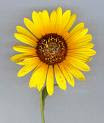Rhubarb Cake
1/2 c. shortening
1 1/2 c. brown sugar
1 egg
1 c. milk
1 1/2 c. rhubarb, chopped 1/2 in. slices
1 t. vanilla
2 c. flour
1 t. baking soda
3/4 t. salt
Cream shortening and brown sugar. Add egg and milk to mix. Stir in rhubarb and vanilla, then add flour, soda and salt (after sifting them together), into the mix.
9x9 pan, 350 degrees, 35-40 min.
topping:(PS I like this cake ALONE, I've never made the topping)
1/4 c. brown sugar
1/4 c. white sugar
1 t. cinnamon
1/2 c. chopped nuts
1 T. butter
combine in a bowl and sprinkle on hot, baked cake.
It is a tasty recipe that my family loves. We have two rhubarb plants on the side of the house and they have had a beating this summer. Hopefully the sun will come out some more for some more growth. (Only 2 days over 70 this summer, ladies!! Forget global warming, I like the words climate change, it ain't warm up here.) Anyway...we have recently been trying ground flax to replace eggs in various recipes like waffles, rolls, cakes and this one works well. Today I made it using a mix of white and whole wheat flour (our Country Living Mill just arrived and Rob set it up on our counter in the garage!! We are millers!!)
Wednesday, July 16, 2008
Thursday, July 3, 2008
3 Cups of Tea--Book Review

This is a fantastic true story about the life of Greg Mortensen, an ER nurse and mountaineer, who discovered a passion for educating children in the remote mountain villages of Pakistan. Mortensen's fight for funds, his determined nature, his ability to connect with the Balti people make for an easy and interesting read. His emphasis on educating the women of the villages is especially poignant. You see how kind and special these people are, you see that not everyone from the Middle East is a terrorist (obviously, but tell that to airport security). The Balti people have such a desire to educate themselves and improve their lives, but they are stuck in the past too.
"Once you educate the boys, they tend to levae the villages and go search for work in the cities. But the girls stay home, become leaders in the community, and pass on what they've learned. If you really want to change a culture, to empower women, improve basic hygiene and health care, and fight high rates of infant mortality, the answer is to educate girls."
The book deals with war, prejudice, religious extremism, cultural barriers, and education. So many large and seemingly insurmountable problems, yet Mortensen continues to live by his mantra of taking it all "one cup of tea at a time."
What do you each see as your main role in helping the women of the world prosper?
Subscribe to:
Posts (Atom)



